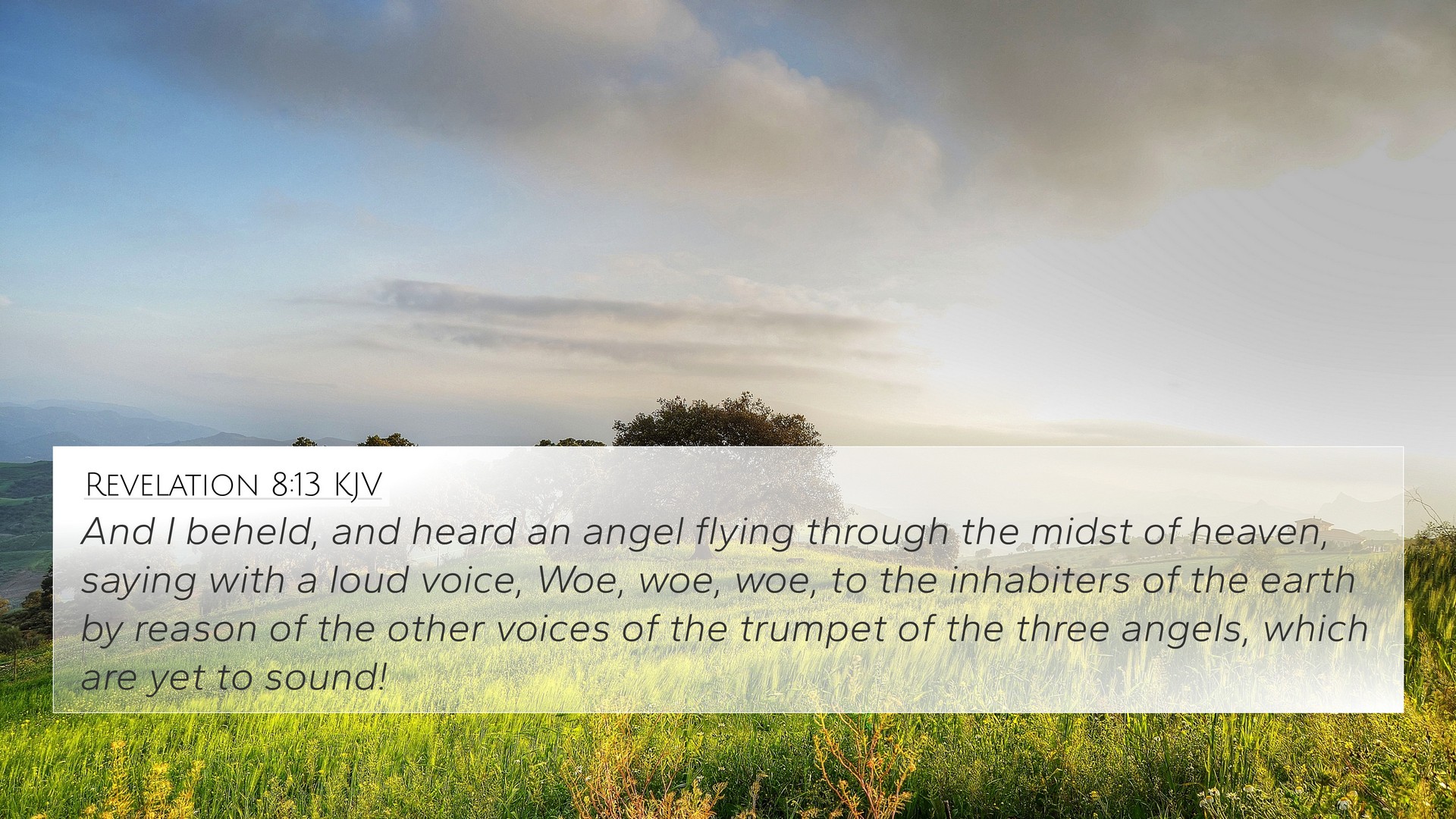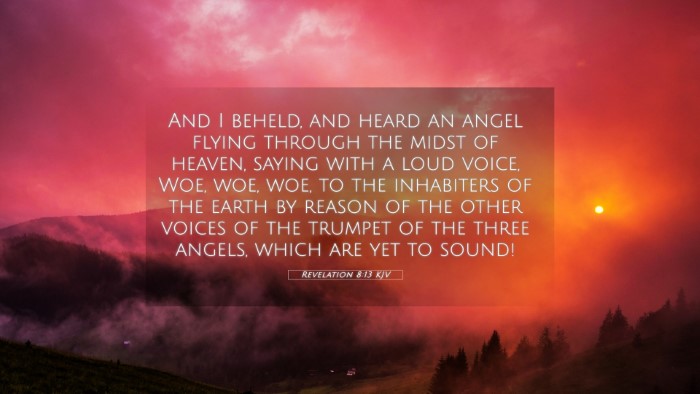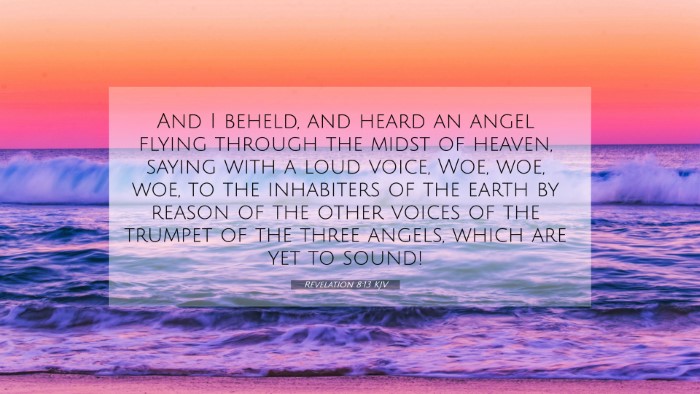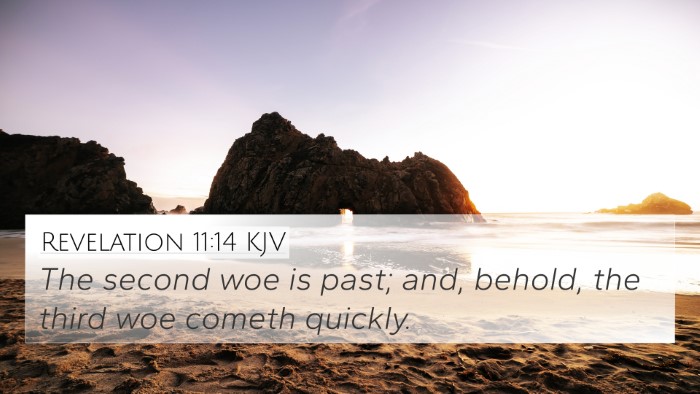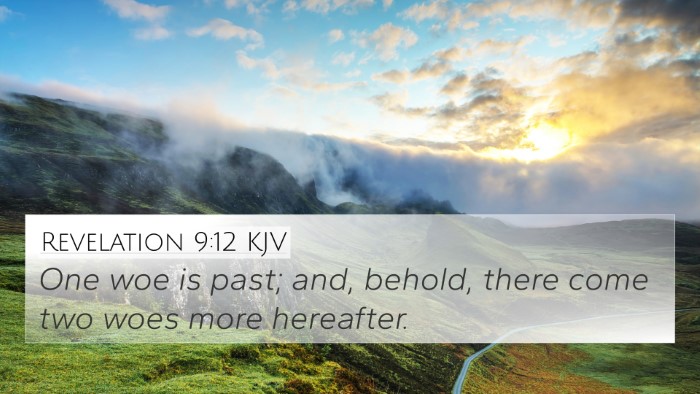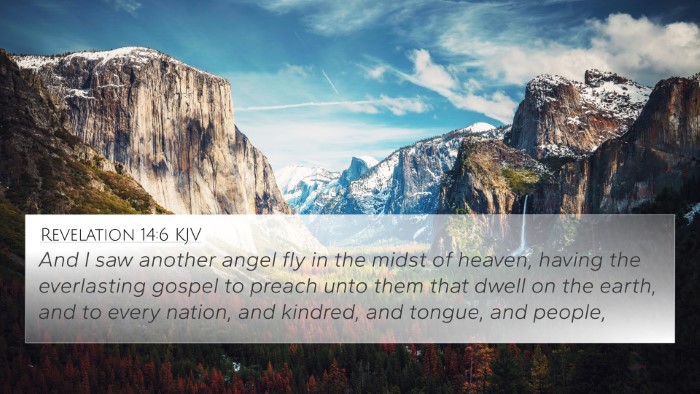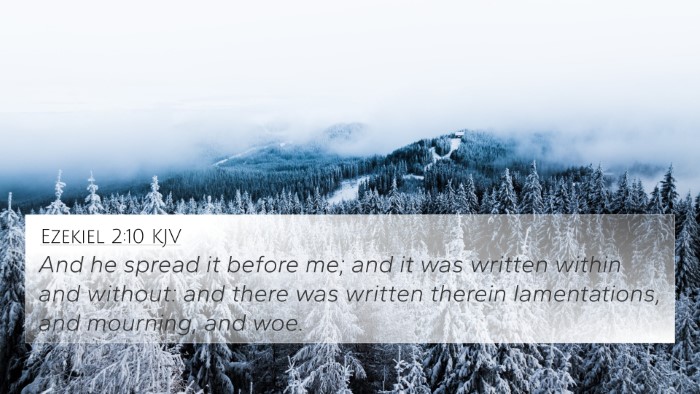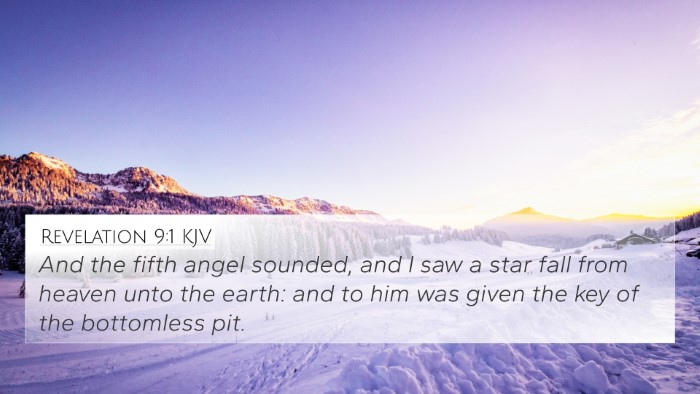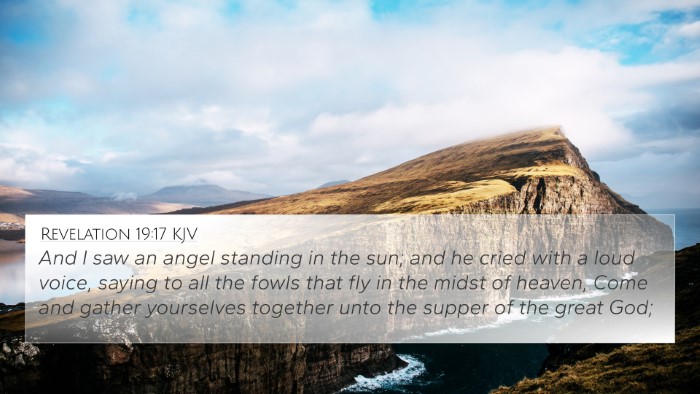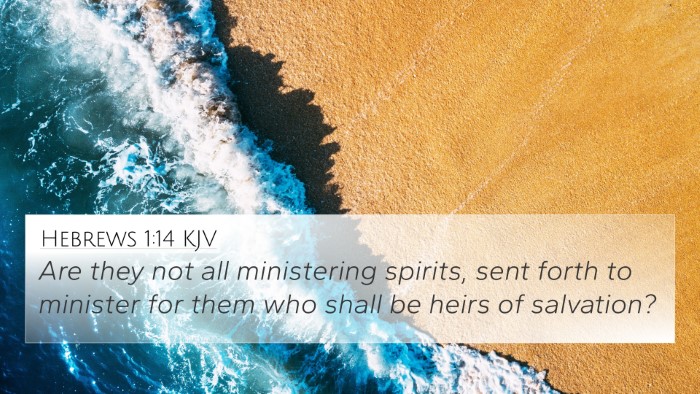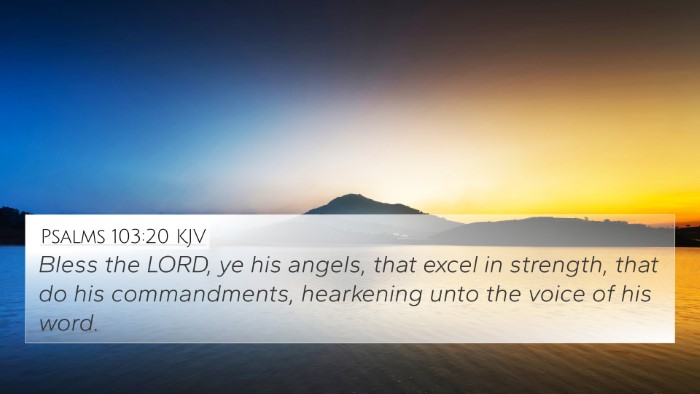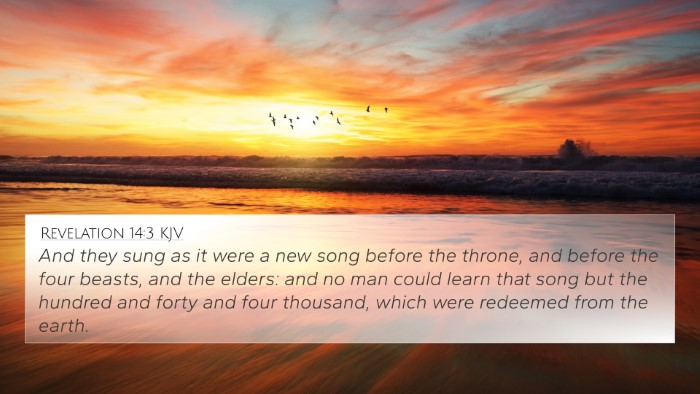Understanding Revelation 8:13
Verse: Revelation 8:13 states, "And I beheld, and heard an angel flying through the midst of heaven, saying with a loud voice, Woe, woe, woe, to the inhabiters of the earth by reason of the other voices of the trumpet of the three angels, which are yet to sound!"
Summary of Meaning
This verse presents a dramatic moment in the prophetic visions of John, where he witnesses an angel proclaiming woe to the inhabitants of the earth. This cry of woe signifies impending judgments that are to follow, highlighting the seriousness of the messages that will accompany the sounding of the trumpets by the three remaining angels.
Commentary Insights
Matthew Henry: Henry emphasizes the gravity of the announcement by the angel, noting that it indicates the judgment and calamity that will befall those who are unrepentant. He encourages readers to consider the mercy of God that extends invitations for repentance even amidst impending woe.
Albert Barnes: Barnes comments on the significance of the "woes" announced by the angel, suggesting that they reflect a deep sorrow for the state of humanity. He implies that these pronouncements serve both as warnings and as divine justice, meant to evoke a response of repentance among the earth's inhabitants.
Adam Clarke: Clarke provides a contextual understanding of the trumpet judgements, noting that each "woe" corresponds to a specific series of divine judgments that are both a call to awareness and a manifestation of God's righteous displeasure at sin.
Cross-References
- Matthew 24:21-22: Refers to a time of unparalleled tribulation and emphasizes the importance of heeding warnings.
- Revelation 9:12: Continues the theme of the woes, adding further distress that will affect the earth.
- Isaiah 5:8: Discusses "woe" in the context of societal sin and God's judgment on unrighteousness.
- Lamentations 1:1: Relates to the sorrow over destruction, paralleling the emotional response of the angel.
- Revelation 11:14: Enforces the concept of the final woes yet to come through prophetic announcements.
- Ezekiel 2:10: Discusses the scroll of lamentations that echoes the theme of judgment and sorrow.
- Jeremiah 9:10: Features lamentations for the fallen state of the people, reinforcing the call to repentance.
Connections to Themes in Scripture
This verse establishes crucial thematic connections to other Bible verses, particularly regarding divine judgment, the nature of repentance, and the consequences of a sinful lifestyle. It speaks profoundly to the idea that God's wrath and mercy coexist, as indicated throughout the biblical narrative.
Comparative Bible Analysis
In a comparative analysis, Revelation 8:13 can be linked to several theological themes that break down the connections between judgment and mercy:
- Judgment: The "woe" signifies warning of severe divine wrath (related to 2 Thessalonians 1:7-9).
- Call to Repentance: Echoes Jesus’ message in Matthew 4:17, urging a change of heart.
- Hope amidst Judgment: God’s recovery plan for Israel in Jeremiah 29:11 brings perspective to the woe.
Inter-Biblical Dialogue
An inter-Biblical dialogue emerges as one examines how the implications of woes in Revelation tie back to Old Testament prophecies and lamentations. The use of "woe" serves as a literary and thematic thread connecting these scriptures, revealing God’s consistent character in calling His people to heed warnings through various means.
Tools for Cross-Referencing Bible Verses
For deeper study of Revelation 8:13 and its connections, utilize tools such as a Bible concordance or a cross-reference Bible study guide. These resources can help uncover links between similar themes in various Biblical texts, enhancing understanding through a comprehensive examination of relevant scriptures.
Conclusion
Revelation 8:13 serves not only as a stark warning but also as an invitation for reflection and repentance in the face of divine judgment. By studying its meanings and connections, believers can gain a profound understanding of God's mercy in conjunction with His righteous justice.
